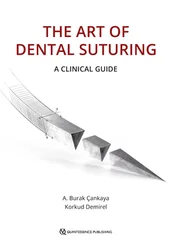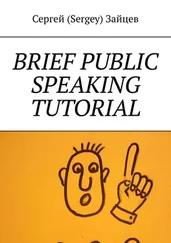have seen play--and heard others praise, and that highly--not to
speak it profanely, that, neither having the accent of
Christians, nor the gait of Christian, pagan, or man, have so
strutted and bellowed that I have thought some of Nature's
journeymen had made men, and not made them well, they imitated
humanity so abominably.[3]
Force is both a cause and an effect. Inner force, which must precede
outer force, is a combination of four elements, acting progressively.
First of all, _force arises from conviction_. You must be convinced of
the truth, or the importance, or the meaning, of what you are about to
say before you can give it forceful delivery. It must lay strong hold
upon your convictions before it can grip your audience. Conviction
convinces.
_The Saturday Evening Post_ in an article on "England's T.R."--Winston
Spencer Churchill--attributed much of Churchill's and Roosevelt's public
platform success to their forceful delivery. No matter what is in hand,
these men make themselves believe for the time being that that one thing
is the most important on earth. Hence they speak to their audiences in a
Do-this-or-you-_PERISH_ manner.
That kind of speaking wins, and it is that virile, strenuous, aggressive
attitude which both distinguishes and maintains the platform careers of
our greatest leaders.
But let us look a little closer at the origins of inner force. How does
conviction affect the man who feels it? We have answered the inquiry in
the very question itself--he _feels_ it: _Conviction produces emotional
tension_. Study the pictures of Theodore Roosevelt and of Billy Sunday
in action--_action_ is the word. Note the tension of their jaw muscles,
the taut lines of sinews in their entire bodies when reaching a climax
of force. Moral and physical force are alike in being both preceded and
accompanied by in-_tens_-ity--tension--tightness of the cords of power.
It is this tautness of the bow-string, this knotting of the muscles,
this contraction before the spring, that makes an audience
_feel_--almost see--the reserve power in a speaker. In some really
wonderful way it is more what a speaker does _not_ say and do that
reveals the dynamo within. _Anything_ may come from such stored-up force
once it is let loose; and that keeps an audience alert, hanging on the
lips of a speaker for his next word. After all, it is all a question of
manhood, for a stuffed doll has neither convictions nor emotional
tension. If you are upholstered with sawdust, keep off the platform, for
your own speech will puncture you.
Growing out of this conviction-tension comes _resolve to make the
audience share that conviction-tension_. Purpose is the backbone of
force; without it speech is flabby--it may glitter, but it is the
iridescence of the spineless jellyfish. You must hold fast to your
resolve if you would hold fast to your audience.
Finally, all this conviction-tension-purpose is lifeless and useless
unless it results in _propulsion_. You remember how Young in his
wonderful "Night Thoughts" delineates the man who
Pushes his prudent purpose to resolve,
Resolves, and re-resolves, and dies the same.
Let not your force "die a-borning,"--bring it to full life in its
conviction, emotional tension, resolve, and propulsive power.
_Can Force be Acquired?_
Yes, if the acquirer has any such capacities as we have just outlined.
How to acquire this vital factor is suggested in its very analysis: Live
with your subject until you are convinced of its importance.
If your message does not of itself arouse you to tension, _PULL_
yourself together. When a man faces the necessity of leaping across a
crevasse he does not wait for inspiration, he _wills_ his muscles into
tensity for the spring--it is not without purpose that our English
language uses the same word to depict a mighty though delicate steel
contrivance and a quick leap through the air. Then resolve--and let it
all end in actual _punch_.
This truth is worth reiteration: The man within is the final factor. He
must supply the fuel. The audience, or even the man himself, may add the
match--it matters little which, only so that there be fire. However
skillfully your engine is constructed, however well it works, you will
have no force if the fire has gone out under the boiler. It matters
little how well you have mastered poise, pause, modulation, and tempo,
if your speech lacks fire it is dead. Neither a dead engine nor a dead
speech will move anybody.
Four factors of force are measurably within your control, and in that
far may be acquired: _ideas_, _feeling about the subject_, _wording_, and
_delivery_. Each of these is more or less fully discussed in this
volume, except wording, which really requires a fuller rhetorical study
than can here be ventured. It is, however, of the utmost importance that
you should be aware of precisely how wording bears upon force in a
sentence. Study "The Working Principles of Rhetoric," by John Franklin
Genung, or the rhetorical treatises of Adams Sherman Hill, of Charles
Sears Baldwin, or any others whose names may easily be learned from any
teacher.
Here are a few suggestions on the use of words to attain force:
_Choice of Words_
PLAIN words are more forceful than words less commonly used--_juggle_
has more vigor than _prestidigitate_.
SHORT words are stronger than long words--_end_ has more directness than
_terminate_.
SAXON words are usually more forceful than Latinistic words--for force,
use _wars against_ rather than _militate against_.
SPECIFIC words are stronger than general words--_pressman_ is more
definite than _printer_.
CONNOTATIVE words, those that suggest more than they say, have more
power than ordinary words--"She _let_ herself be married" expresses more
than "She _married_."
EPITHETS, figuratively descriptive words, are more effective than direct
names--"Go tell that _old fox_," has more "punch" than "Go tell that
_sly fellow_." ONOMATOPOETIC words, words that convey the sense by the
sound, are more powerful than other words--_crash_ is more effective
than _cataclysm_.
_Arrangement of words_
Cut out modifiers.
Cut out connectives.
Begin with words that demand attention.
"End with words that deserve distinction," says Prof. Barrett Wendell.
Set strong ideas over against weaker ones, so as to gain strength by the
contrast.
Avoid elaborate sentence structure--short sentences are stronger than
long ones.
Cut out every useless word, so as to give prominence to the really
important ones.
Let each sentence be a condensed battering ram, swinging to its final
blow on the attention.
A familiar, homely idiom, if not worn by much use, is more effective
than a highly formal, scholarly expression.
Consider well the relative value of different positions in the sentence
so that you may give the prominent place to ideas you wish to emphasize.
"But," says someone, "is it not more honest to depend the inherent
interest in a subject, its native truth, clearness and sincerity of
presentation, and beauty of utterance, to win your audience? Why not
charm men instead of capturing them by assault?"
_Why Use Force?_
There is much truth in such an appeal, but not all the truth.
Clearness, persuasion, beauty, simple statement of truth, are all
essential--indeed, they are all definite parts of a forceful
Читать дальше












